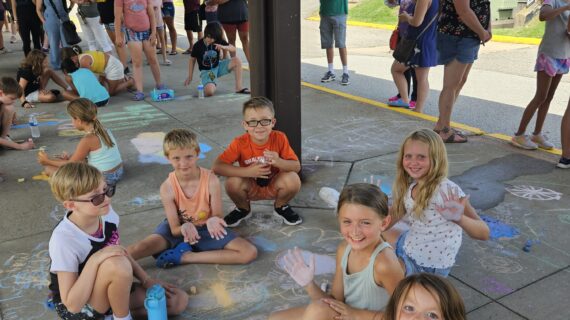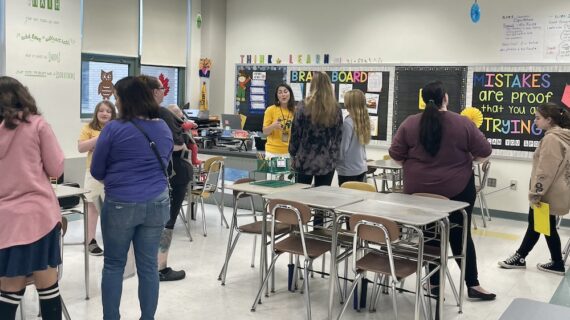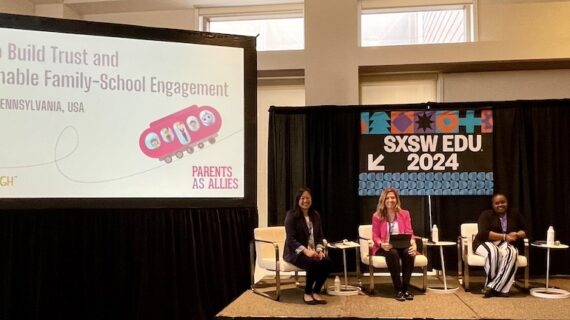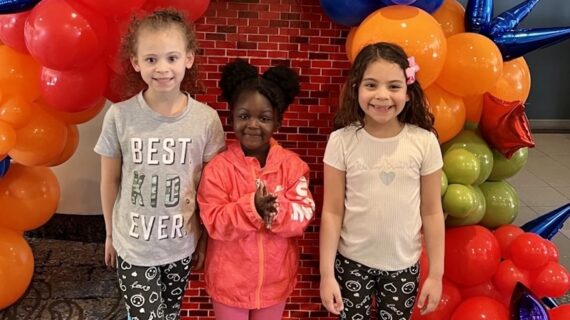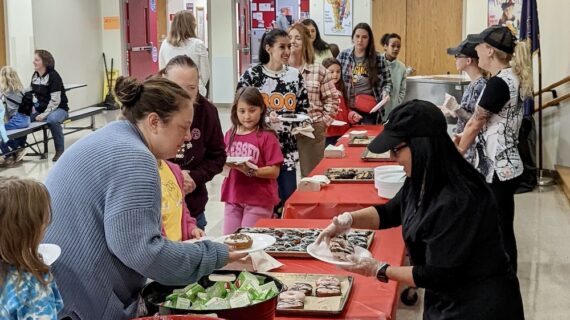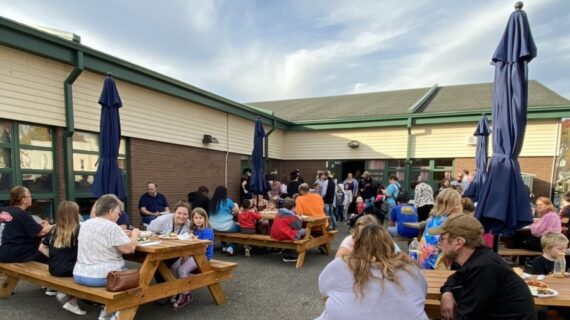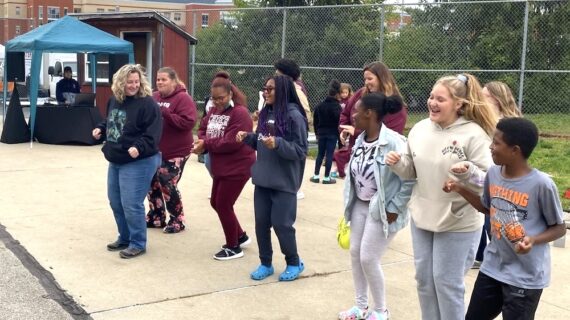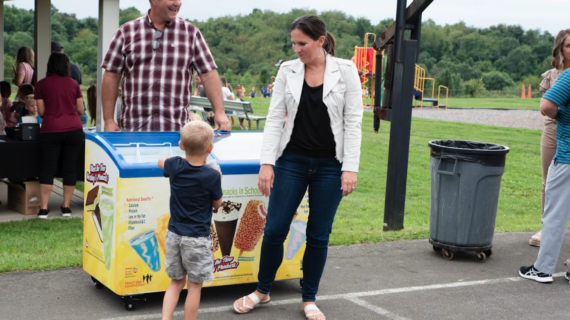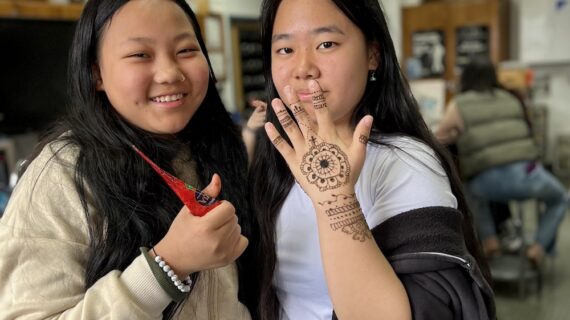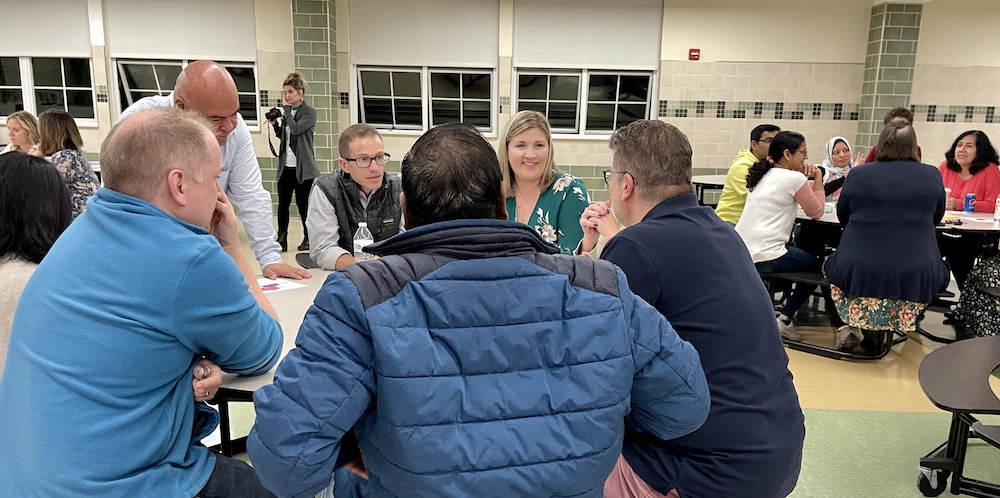
Parents as Allies: How South Fayette’s PAA team tackled the puzzle of family-school engagement
As a parent and a former student, Dominique Robinson knew how much South Fayette School District does for its kids. But coming out of the pandemic, she also recognized a powerful disconnect between everything the school was doing and what the current community of parents could see.
After so many months of quarantine and hybrid learning, students were just beginning to reconnect with their schools and rediscover what it was like to spend time in their classrooms. Robinson felt it was vital to have parents involved in supporting their kids as learners and to make sure parents knew that the schools cared about helping every child thrive.
So when South Fayette began assembling a team of parents and school staff to participate in the Parents as Allies (PAA) family-school engagement project in 2021, Robinson was all in.
Many of her team members were just as eager. Dr. Kevin Maurer, the associate principal at South Fayette Middle School, had just finished his dissertation on family-school engagement. The approach of PAA – bringing teachers and parents together to hack the challenge of connecting the school community with help from design thinking – aligned with his personal and professional goals. And Dr. Chuck Herring, the diversity, equity and inclusion director at South Fayette, has long been a connector of people and a champion of making sure everyone has their say.
So along with the rest of their PAA team, they dove into the work of building more communication and connection between South Fayette’s families and the schools.
“We wanted all of our learners to feel engaged and supported, and also extend that to the parents,” Robinson says.
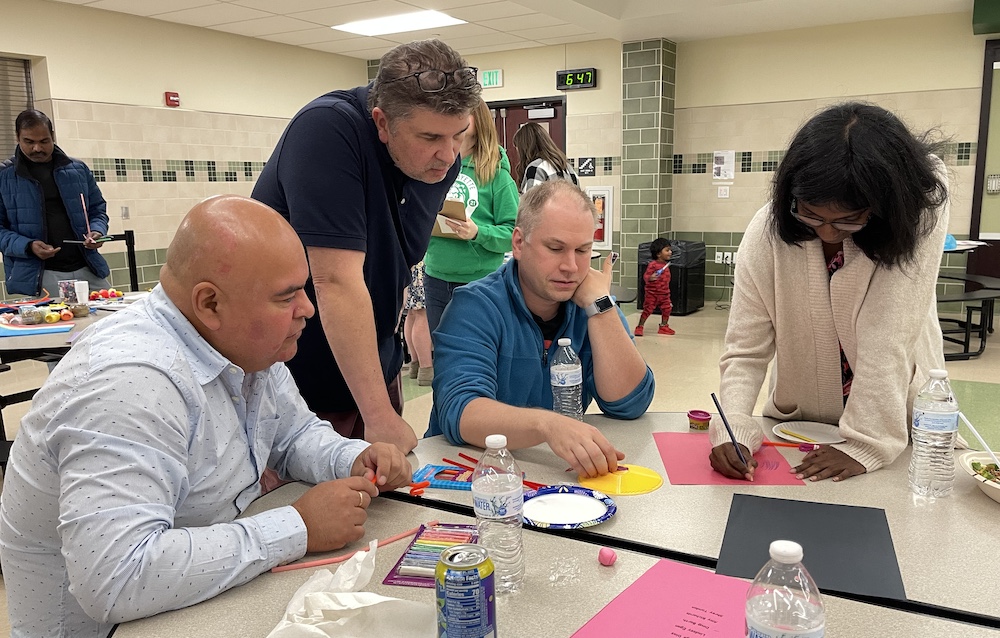
WHAT DID THEY TRY?
The PAA team wanted parents to be better informed about what was happening at school. So they reframed communication to include updates about what was going well for the students, rather than just reaching out to parents when there were problems. That created a robust feedback loop that put the focus on success instead of bumps in the road.
But they didn’t just want parents to hear from teachers or read about school happenings on Facebook. They wanted to help people get into the buildings. So they helped parents work through the security clearance process. And they began reaching out to parents who hadn’t been at school in a while.
The team invited those parents to volunteer and created events where all parents felt welcome. They also spread the word: We’d love to have you volunteer at elementary or middle school events – even after your child has moved on to high school.
There were more creative moves, too. They invited parents to speak about their careers and areas of expertise – bringing the experience of the community into the classroom regularly. And they hosted an event where parents could learn about the “World of Work” program that kids were using to discover future careers.
The team also realized that some parents were hesitant about diving in because they hadn’t had positive school experiences when they were kids. So they planned an event outside the school building to connect with parents on neutral ground.
At this community dinner party, kids and parents followed clues about the history of South Fayette and worked together to open puzzle boxes that held painting supplies. Once they cracked open their boxes, the families created artwork that now hangs in the middle school counseling office.
“It was a great party with a nice, easygoing vibe — a lot of laughing and storytelling,” Maurer says.
Faculty from all four of the district’s school buildings were there, getting to know families face to face. Parents were having fun with their kids, learning about the history of their community and feeling welcome as partners in the work of educating their kids.
“Each of us needs all of us to become the best of us,” Herring says. And at South Fayette, it is becoming clear: Good family-school engagement help can share that message with everyone.
WHAT WOULD THEY TELL OTHER SCHOOLS?
- Get people talking about school events. Get the word out in advance to create positive buzz and share positive feedback, so that school events become something people look forward to rather than tolerate.
- Recruit a strong, diverse, thoughtfully built team. Ask people who you should include. Be realistic about your own weaknesses and recruit people to fill in those blanks. “The best way to get started is passionate representation,” Robinson says, so your team is full of people who do much more than the minimum.
- Keep the doors open. As your family-school engagement work grows, make space for more people to get involved. Don’t limit your engagement to a small, predictable group of people.
Since early 2021, Parents as Allies has helped more than two dozen school districts in southwestern Pennsylvania build engagement with families with support from the Grable Foundation. As the project enters its fourth year, we are sharing innovative hacks and fresh ideas from these districts to help families and schools in our region and around the world connect more deeply and support each other more fully. This story is one in a series chronicling these parent-school engagement discoveries. Stay tuned for more stories throughout the coming months.
